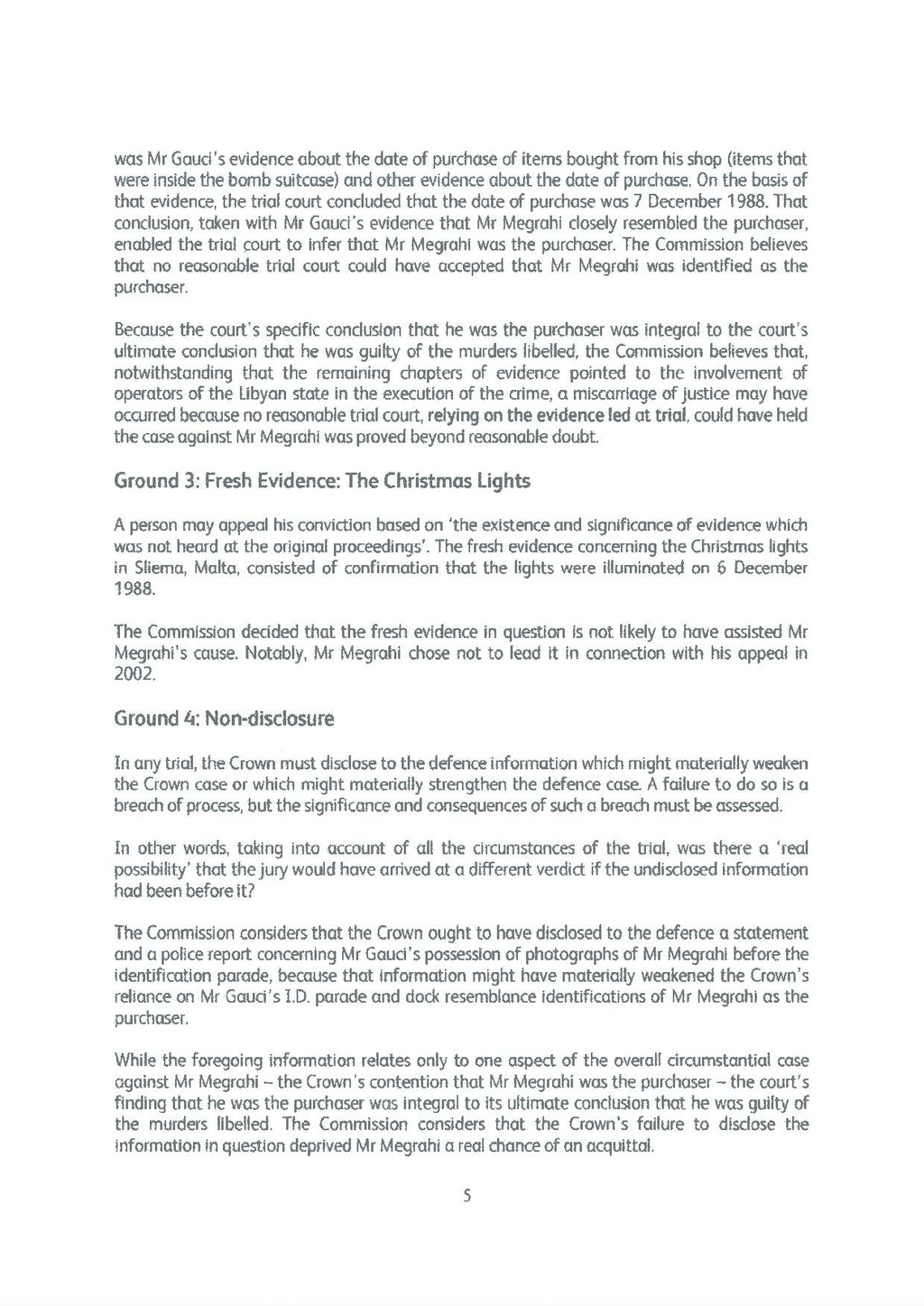was Mr Gauci's evidence about the date of purchase of items bought from his shop (items that were inside the bomb suitcase) and other evidence about the date of purchase.
On the basis of that evidence, the trial court concluded that the date of purchase was 1988-12-07 .
That conclusion, taken with Mr Gauci's evidence that Mr Megrahi closely resembled the purchaser, enabled the trial court to infer that Mr Megrahi was the purchaser.
The Commission believes that no reasonable trial court could have accepted that Mr Megrahi was identified as the purchaser.
Because the court's specific conclusion that he was the purchaser was integral to the court's ultimate conclusion that he was guilty of the murders libelled, the Commission believes that, notwithstanding that the remaining chapters of evidence pointed to the involvement of operators of the Libyan state in the execution of the crime, a miscarriage of justice may have occurred because no reasonable trial court, relying on the evidence led at trial, could have held the case against Mr Megrahi was proved beyond reasonable doubt.
Ground 3: Fresh Evidence: The Christmas Lights
A person may appeal his conviction based on the existence and significance of evidence which was not heard at the original proceedings'.
The fresh evidence concerning the Christmas lights in Sliema, Malta, consisted of confirmation that the lights were illuminated on 1988-12-06 .
The Commission decided that the fresh evidence in question is not likely to have assisted Mr Megrahi's cause. Notably, Mr Megrahi chose not to lead it in connection with his appeal in 2002.
Ground 4: Non-disclosure
In any trial, the Crown must disclose to the defence information which might materially weaken the Crown case or which might materially strengthen the defence case.
A failure to do so is a breach of process, but the significance and consequences of such a breach must be assessed.
In other words, taking into account of all the circumstances of the trial, was there a 'real possibility' that the jury would have arrived at a different verdict if the undisclosed information had been before it?
The Commission considers that the Crown ought to have disclosed to the defence a statement and a police report concerning Mr Gauci's possession of photographs of Mr Megrahi before the identification parade, because that information might have materially weakened the Crown's reliance on Mr Gauci's I.D. parade and dock resemblance identifications of Mr Megrahi as the purchaser.
While the foregoing information relates only to one aspect of the overall circumstantial case against Mr Megrahi – the Crown's contention that Mr Megrahi was the purchaser – the court's finding that he was the purchaser was integral to its ultimate conclusion that he was guilty of the murders libelled.
The Commission considers that the Crown's failure to disclose the information in question deprived Mr Megrahi a real chance of an acquittal.
5
